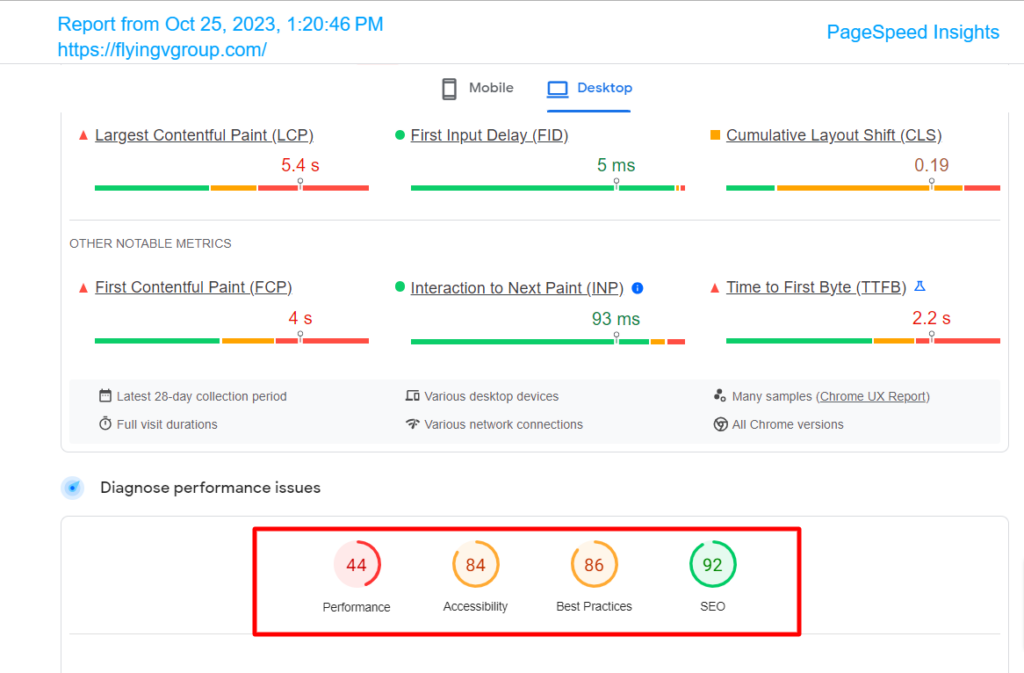Want to get ahead online? A DIY SEO audit is your answer. The online world is packed with businesses like yours, all trying to be number one. But many don’t know how to check if their website works. If you ignore this, you might lose customers and money.
But don’t worry! This guide will show you easy steps to check your website’s health and make it shine. Let’s help your business stand out!
DIY SEO Audit: Understanding SEO Audits
SEO audits are foundational in digital marketing. They delve deep into a website’s performance, identifying strengths and pinpointing areas of improvement. In essence, they act as a diagnostic tool, providing insights into the “SEO health” of your website, giving you a clear understanding of what’s working and what’s not.
The Role of SEO Audits in Digital Marketing
Robb, the managing partner of Flying Group, aptly sums it up: “Education is a big piece of SEO. Understanding how SEO works and what components go into an SEO strategy will help you understand why certain factors might be essential.” These audits shed light on various aspects, from meta titles and descriptions to site structure and technical issues. They guide the SEO strategy, offering a roadmap for optimization and growth. In a digital landscape where competition is fierce, audits ensure your website stands out and performs at its peak.
Benefits of a DIY Approach
Taking the DIY route for an SEO audit can be beneficial for those willing to immerse themselves in the nitty-gritty of their website. It gives a firsthand understanding of your site’s current state, revealing opportunities and areas that require attention. With tools like ARAFs or Semrach, even a novice can understand their website’s health metrics.
Yet, Robb brings out an essential caution, stating, “Anytime you’re unfamiliar with design, dev, and code, you can break certain things or put yourself in a bad position.” Mistakes can be costly. For instance, incorrectly setting up plugins like Yoast SEO might end up telling search engines not to index your site, a glaring misstep.
However, there’s some “low-hanging fruit” that even novices can tackle. Ensuring every page of your site has the right meta-title and description is a straightforward yet impactful task. As Robb points out, “This fills up your website with as much content and information for Google to dissect, painting a fuller picture of the entire website.“
Yet, for those lacking web experience, especially in development, Robb offers sage advice: “Be very careful or consult with a web developer.” While the DIY approach can be enlightening, it’s also a realm where expertise and experience hold undeniable value.
Preparing for the SEO Audit
Before you start the SEO check, have a plan. This makes your work easier and helps you find important things to improve your website.
1. Setting Clear Goals and Objectives
Before you start, know what you want to fix. Do you want more people to visit your website? Make it easier to use? Or fix website problems? Knowing your goals helps you check the right things. Even though making your website better takes time, having clear goals helps you get better results.
2. Defining Key Performance Indicators (KPIs)
After you know your goals, figure out how to check if you’re doing well. If you want more people to see your website, look at how many visit, which words help them find you, and if they click on your links.
Also, make sure each page of your website has good titles and descriptions. This helps search engines like Google understand your site better.
3. Gathering Necessary Tools and Resources
There are many tools like Ahrefs and Semrush to help with SEO. Choose one that’s easy for you and shows what your website needs. Some tools even give free checks to see how your website is doing.
If you know a bit about websites, make sure your pages have the right tags. But be careful! Don’t use tags just to make things look nice. They help search engines find your site.
Doing your own SEO check can be tricky. If you’re not sure about website stuff, you might make mistakes. Some tools, like Yoast SEO, can hide your site if used wrong.
If all this sounds hard, maybe ask an expert for help. Good SEO means more people visit your site and become customers.
How To Do The DIY SEO Audit
Regular SEO audits are indispensable for ensuring your website’s optimum performance in the evolving digital ecosystem. An effective audit is akin to a health check-up for your website – it pinpoints areas of strength and uncovers hidden weaknesses. If you’re keen on conducting a DIY SEO audit, here’s a comprehensive guide to help you navigate through the process:
1. Technical SEO Assessment:
• Website Speed and Performance: Begin by using tools such as Google’s PageSpeed Insights or GTmetrix. These tools provide insights into your website’s loading speed, offering actionable suggestions for improvement. Remember, a faster website enhances user experience and is favored by search engines.

• Mobile Optimization: Test your website’s mobile-friendliness using Google’s Mobile-Friendly Test. Ensure that your website is responsive, delivering a consistent experience across all devices.
• Site Structure and Navigation: Your website should be easy for both users and search engines to navigate. A clear, logical structure aids user experience and helps search engine bots crawl your site efficiently.
• URL Structure and Canonicalization: Ensure that URLs are simple, descriptive, and free from unnecessary parameters. Utilize canonical tags to inform search engines about the preferred version of a page, avoiding potential duplicate content issues.
• Crawl Errors and XML Sitemap: Use tools like Google Search Console to identify crawl errors. Ensure that your XML sitemap is updated and submitted to search engines to guide their crawlers and highlight the important pages.
2. On-Page SEO Analysis:
• Keyword Research and Optimization: Utilize platforms like SEMrush or Ubersuggest to identify target keywords. Make sure each page is optimized for relevant keywords, and avoid keyword stuffing.
• Content Quality and Relevance: Regularly review content to ensure it’s current, valuable, and relevant to your target audience. Update outdated content and expand areas that can offer more depth.
• Meta Titles and Descriptions: These should be compelling, incorporating target keywords. They play a significant role in click-through rates from search results.
• Header Tags (H1, H2, H3, etc.): Ensure a clear hierarchy of header tags on each page, with the main topic encapsulated in the H1 tag and subtopics in H2 and H3 tags.
• Image Optimization: All images should be compressed to minimize load time, with relevant alt-text to describe the image’s content for search engines and visually impaired users.
• Internal Linking Strategy: Links between your website’s pages can distribute page authority and help in guiding users to high-value areas. Ensure logical, valuable links, and avoid excessive or forced linking.
3. Off-Page SEO Evaluation:
• Backlink Profile Analysis: Tools like Ahrefs or Moz can help you examine your site’s backlink profile. Backlinks are a significant ranking factor, but quality trumps quantity.
• Identifying Toxic Backlinks: Keep an eye out for low-quality or spammy links pointing to your site within your backlink analysis tools. Consider disavowing these links to prevent potential penalties.
• Social Signals and Reputation Management: Monitor mentions of your brand on social media and other online platforms. While social signals aren’t direct ranking factors, they can influence your site’s reputation and authority.
Mastering the art of a DIY SEO audit allows you to keep a pulse on your website’s health and adjust strategies as needed, ensuring you remain on the pathway to digital excellence.
Navigating the Road Ahead with Expertise
Want your website to be the best? Doing a DIY SEO audit helps a lot. But sometimes, it’s good to have experts help. They know all the tiny details to make your website shine.
Flying V Group isn’t just any team; they’re pros at this! With us, your website can be at the top. If you want to be the best online, let Flying V Group guide you. We’ll help your website grow big and strong.
FAQs
How to perform a DIY SEO audit in 2023?
To do an SEO audit, first, check how your website looks and works. See if it’s easy to use and if everything loads quickly. Then, look at the words and topics on your site to make sure they match what people are searching for. There are also special tools and websites that can help you see how well your site is doing. It’s like giving your website a check-up to make sure it’s healthy and can be easily found on the internet.
How SEO can boost your business?
SEO helps your business by making your website show up more on search engines like Google. When people search for things related to your business, they can find you easier. This means more people visit your website, learn about your products or services, and might buy from you.
Does SEO really work for small business?
Yes, SEO works for small businesses too. It helps your business show up when people search online. Even if your business is small, using SEO can help more people find you, learn about what you offer, and become your customers.
What is a DIY SEO audit checklist?
A DIY SEO audit checklist is like a to-do list for checking how well your website works with search engines. It helps you look at technical stuff, what’s on your website, what links to it, and the content you have. By using this list, you can find what needs fixing so your website can show up better in search results






0 Comments